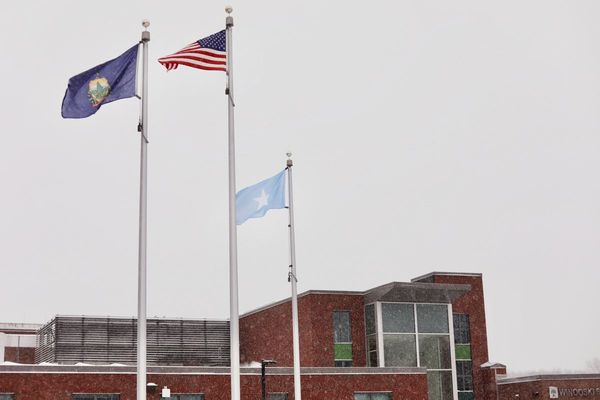
International pledges of emergency aid have poured in for Turkey and Syria, leading to calls for the international community to relax some of the political restrictions on aid entering north-west Syria, the country’s last rebel-held enclave and one of the areas worst hit by the earthquake.
With the support of Russia at the UN, the government in Damascus allows aid to enter the region through only one border crossing. The Syrian Association for Citizens Dignity said all crossings must be opened on an emergency basis.
The crisis is likely to be a test of whether a divided international community riven by the war in Ukraine and conflicts in the Middle East can temporarily bury its differences in the interests of addressing a humanitarian emergency.
The Turkish president, Recep Tayyip Erdoğan, who is facing an election in a few months, said offers of aid to Turkey had come from 45 countries ranging from Kuwait to Israel, Russia and the UK. Syria said it had received offers of help from China, Russia, Lebanon, Algeria and the United Arab Emirates.
But the scale of the aid being offered will require a large coordination effort, as well delicate diplomatic manoeuvres to supply aid to Syria where the leadership of Bashar al-Assad is not recognised in the west.
By Monday afternoon the number of dead in northern Syria had reached 840, about a half of the fast-rising death toll in Turkey of 1,541.
The Syrian side of the border may provide a greater aid challenge since some of the worst-affected areas contain hundreds of thousands of Syrian refugees locked in a war zone and facing attacks from Syrian government forces.
Aid agencies reported that some of the roads from Turkey into Syria were blocked, including the main cross border crossing used by international aid agencies.
The US secretary of state, Antony Blinken, said the US was already assessing its comprehensive response options, “and had directed my team to remain in close contact with our Turkish allies and our humanitarian partners in the coming days to determine what the region needs”.
He added: “We are determined to do all that we can to help those affected by these earthquakes in the days, weeks, and months ahead.”
The EU said it had mobilised its emergency coordination centre and rescue teams in the Netherlands and Romania. The bloc’s foreign affairs chief, Josep Borrell, said: “Ten urban search and rescue teams have been quickly mobilised from Bulgaria, Croatia, [the Czech Republic], France, Greece, the Netherlands, Poland [and] Romania to support the first responders on the ground. Italy and Hungary have offered their rescue teams to Turkey as well.”
The EU’s Copernicus satellite system has been activated to provide emergency mapping services.
Other countries offering help included Ukraine, whose president, Volodymyr Zelenskiy, sent a message offering condolences. The French President Emmanuel Macron said he was despatching a 139 strong civilian rescue team and the US announced it was sending two search and rescue teams each 79 strong. Soldiers from Azerbaijan were the fist to arrive in Turkey to offer practical support sending 400 fully equipped soldiers. Russia said it had emergency rescue Ilyushin-76 planes on standby to fly to the two countries. Its defence minister, Sergei Shoigu, ordered Russian forces in Syria to help with the rescue effort, including from the naval base at Tartus.
Tobias Billström, the Swedish foreign affairs minister, tweeted: “I deeply regret the terrible consequences of the earthquake in Turkey and Syria with a high loss of lives. As Sweden holds the EU presidency we are going to reach out to the Turkish foreign affairs minister, Mevlüt Çavuşoğlu, and to Syria for the coordination of EU efforts to aid these countries in this disaster.”
Sweden has been at loggerheads with Turkey over Erdoğan’s refusal to allow it into Nato.
Erdoğan’s ability to oversee the crisis and to cooperate with countries that he sometimes antagonises will be a critical test for him before the presidential election due on 14 May. The opposition, seeking to capitalise on the dire state of the economy, was due to select its candidate next Monday, but depending on how the crisis unfolds in the next few days it may have to postpone making its choice.
The White Helmets, the western-backed NGO that has rescued thousands of people from bombed buildings during the Syrian civil war, said adverse weather conditions including freezing temperatures had compounded the crisis.
It urged the Assad regime and Russia to refrain from military activity in the affected areas to allow international groups to unify to help people affected.
A spokesperson in Syria said: “Our teams responded and until now many families are under the rubble. Our teams are trying hard to help all the casualties. North-west Syria is now a disaster area. We need help from everyone to save our people.”
Last month, the UN security council agreed to allow aid into north-west Syria from Turkey across one border crossing, at Bab al-Hawa. Syria has been resistant to allowing aid into a region serving more than 4 million people because it regards the aid as undermining Syrian sovereignty and reducing its chances of winning back control of the region.
“The areas worst affected by the earthquake inside Syria look to be run by the Turkish-controlled opposition and not by the Syrian government,” said Mark Lowcock, the former head of UN humanitarian affairs. “It is going to require Turkish acquiescence to get aid into those areas. It is unlikely the Syrian government will do much to help.”
It is hoped that the relatively sophisticated network of aid agencies that operate in Syria and southern Turkey means help can arrive relatively quickly. But the infrastructure of some of the aid groups themselves has been disrupted. The epicentre of the initial earthquake was near Gaziantep, where aid agencies including Syria Relief, the UK’s largest Syria relief charity, have their offices.
Video from a hospital posted by the Syrian American Medical Society (SAMS) on Monday showed it immensely crowded. The society said: “Our hospitals are overwhelmed with patients filling the hallways. There is an immediate need for trauma supplies and a comprehensive emergency response to save lives and treat the injured.”
Initial needs are for tens of thousands tents, heaters for the tents, tens of thousands blankets, thermal clothes, ready-to-eat food and basic first aid kits.
Rick Brennan, the World Health Organization’s regional director of emergencies for the eastern Mediterranean, said the UN body would increase the number of its staff in Gaziantep and is looking at options for sending emergency medical teams to the region. “I think we can expect the death toll to increase significantly,” he said.
Tanya Evans, the Syria country director for the International Rescue Committee, said: “Many in north-west Syria have been displaced up to 20 times, and with health facilities strained beyond capacity even before this tragedy, many did not have access to the healthcare they critically need”.
She said the Syria humanitarian response plan for this year was already severely underfunded, with less than 50% of the required $4bn funded.
The UK said it was sending 76 search and rescue specialists, four dogs and equipment to arrive in Turkey on Monday evening. An emergency medical team will also be sent to assess the situation on the ground. Ministers said they were in contact with the UN about the provision of emergency humanitarian support to those affected in Syria.
Germany’s Federal Agency for Technical Relief (THW) is preparing to deliver emergency generators, tents and blankets to Turkey. Emergency shelters and water treatment systems could also be provided, the German interior minister, Nancy Faeser, said.
Greece, Israel, Egypt, Qatar and the UAE have also offered aid.







